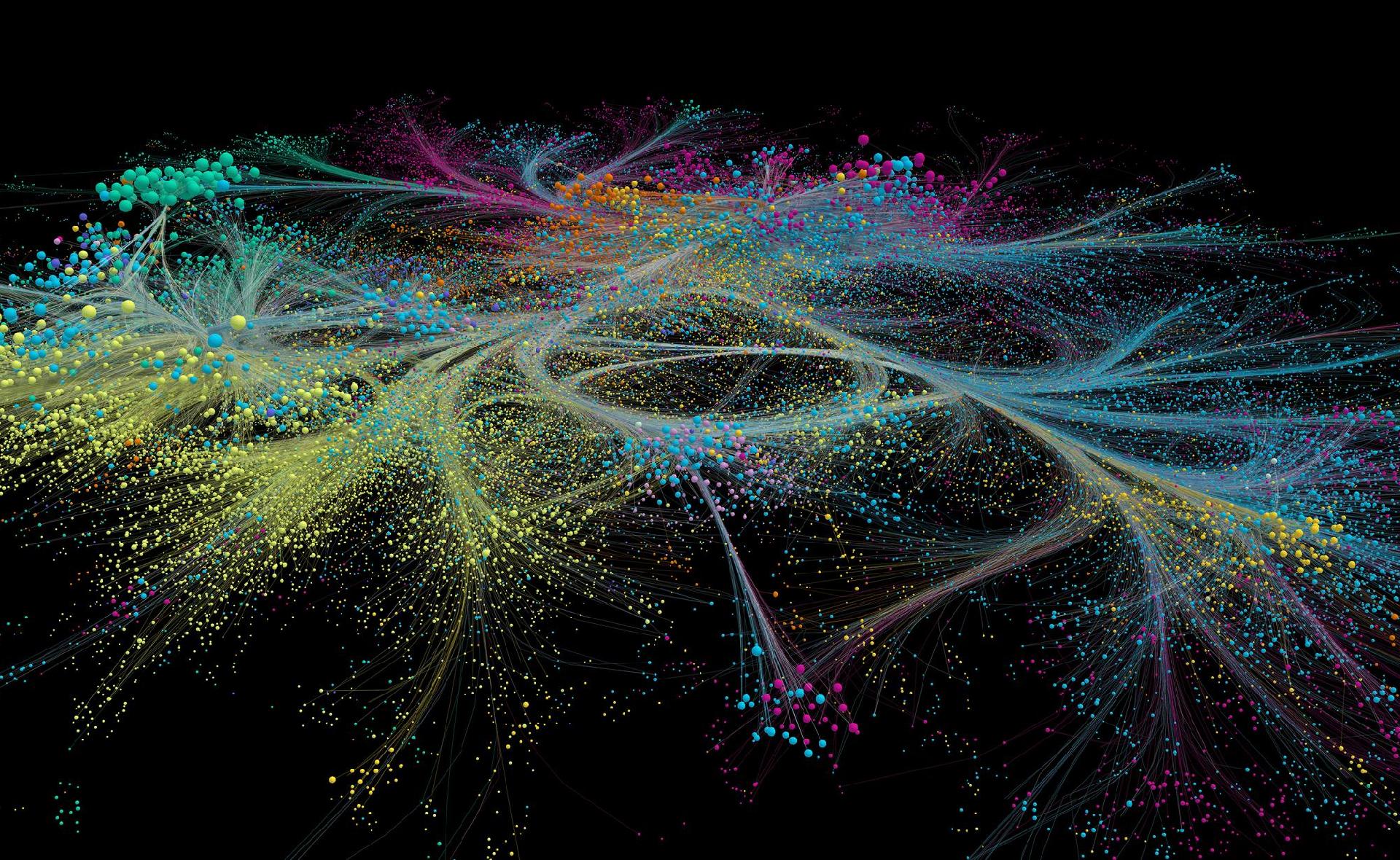
In 2019, the scientific journal Nature marked its 150th anniversary by commissioning a unique multimedia project created by Albert-László Barabási and his team. The project began as a data-driven analysis of the journal's history, mapping out the co-citation network connecting the 88,000 papers published since 1900. The resulting visualization highlighted the multidisciplinary scope of the journal and the co-citation of different disciplines.
(Gates, A. J., Ke, Q., Varol, O., & Barabási, A. L. (2019). Nature’s reach: narrow work has broad impact. Nature, 575(7781), 32-34.)
The project evolved into a foldout cover, an image, a video, and an interactive website, all showcasing the co-citation network connecting all the papers published in Nature over the past 150 years. Each sphere in the visualization represents a paper, and two papers are linked if they have been co-cited, demonstrating how ideas are born when different disciplines collide, and how knowledge leads to the emergence of schools of thought. The cover and accompanying video were created in collaboration with the Barabasi Lab and Nature's editors and also exist as an interactive tool. With a readership of over 400,000 people, Nature continues to celebrate its impact on the world of science.
Barabási is a pioneer in network science who uses quantitative tools to uncover the hidden order behind complex systems. He has made significant contributions to the field, including the discovery of scale-free networks, which explain the emergence of many natural, technological, and social networks. Barabási is Professor of Network Science at Northeastern University. He has authored several books, including The Formula: The Universal Laws of Success and Science of Science (with Dashun Wang the book).
The "science of science" is an emerging interdisciplinary field that uses big data to understand the patterns that govern individual scientific careers and the workings of science. This field explores topics such as scientific impact, productivity, creativity, effective collaborations, and the impact of failure and success in a scientific career.